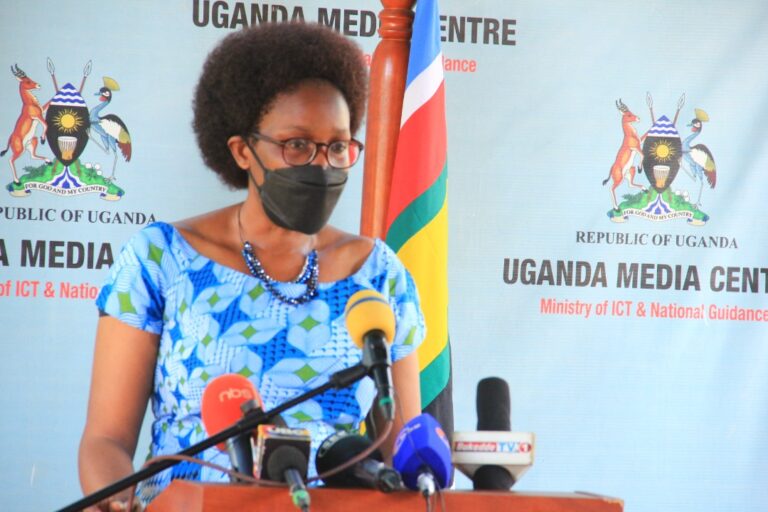The government of Uganda has instructed landlords nationwide to begin registering bibanja holders (tenants) on their land.
This directive aims to reduce conflicts between landlords and tenants by establishing clear records and identifying all land occupants.
Lands Minister Judith Nabakooba emphasized that landlords should maintain a registry of tenants, which will prevent encroachment issues and improve tenant-landlord relations.
Nabakooba also highlighted that landlords refusing to accept busuulu (nominal ground rent) often trigger disputes.
Supporting Tenants’ Rights through the Land Fund
Minister Nabakooba reassured the public that the government, led by the National Resistance Movement (NRM), is committed to aiding tenants in achieving full land ownership through the Land Fund.
According to Nabakooba, a key promise in the NRM manifesto is to help tenants register their occupancy rights, which may later be upgraded to full ownership through title acquisition.
Since many bibanja holders are squatters, the government has made it a priority to protect and empower them.
Challenges with Busuulu Rates and Landlord Concerns
During a community meeting in Mityana, Nabakooba addressed landlords’ concerns over low busuulu rates, suggesting that they apply for the Land Fund to allow the government to purchase their land.
At the meeting, a landlord named Sarah Nakayima from Kassanda District voiced fears about tenants encroaching on her land and threatening her over busuulu payments.
Nabakooba instructed local officials to assist Nakayima in applying for Land Fund support, assuring her that government surveyors would assess her land boundaries.
Legal Obligations and Busuulu Payment Guidelines
Minister Nabakooba reiterated that tenants are required to pay busuulu, and evictions are only lawful if tenants fail to pay.
The district land boards set busuulu rates, and in cases where they do not, the Lands Minister has the authority to establish rates by statutory instrument. Currently, the busuulu rates vary by area:
- Cities: UGX 50,000
- Municipalities: UGX 40,000
- Urban councils: UGX 30,000
- Town boards: UGX 20,000
- Rural areas: UGX 5,000
Addressing Landlord-Tenant Wrangles: A Complex Issue Rooted in History
The Buganda region has historically witnessed more landlord-tenant disputes due to the mailo land tenure system, which was introduced under the 1900 Buganda Agreement.
This system provided private property rights to traditional authorities but excluded bibanja holders who worked the land.
James Galabuzi Mukasa, chairperson of the Uganda Land Owners Association, urged the government to establish a clear system to distinguish legitimate tenants from unauthorized occupants.
Advocating for Economic Inclusion in Land Use
Galabuzi recommended that land use policies should promote economic benefits for both landlords and tenants, reducing the reliance on the outdated busuulu system. He suggested that a system where both landlords and tenants benefit from land utilization could ease conflicts.
Buganda Kingdom’s Response: Ongoing Efforts to Register Bibanja Holders
Israel Kazibwe, Minister of Information for Buganda Kingdom, welcomed the government’s move to register bibanja holders.
He mentioned that the Buganda Land Board (BLB) has already been actively registering tenants on kingdom land, providing them with certified land documents.
Calls for Government Intervention through the Land Fund
Ambassador Kintu Nyago, patron of the Bibanja Holders’ Association, has urged the government to utilize the Land Fund to buy land from landlords willing to negotiate.
Nyago noted that many landlords would prefer selling their land at market value rather than collecting busuulu, and he warned that unresolved land evictions could have political repercussions in the 2026 elections.
President Museveni’s Directive Against Illegal Evictions
In June, President Yoweri Museveni ordered landlords to halt illegal evictions of bibanja holders and instructed them to refund excessive busuulu charges.
He warned landlords that overcharging tenants or evicting them without cause would result in legal action. President Museveni stated that the 1998 Land Act protects bibanja holders who occupied their land before 1983, allowing landlords only to charge nominal rent.
By implementing this registration and supporting the Land Fund, the government aims to create a balanced, conflict-free relationship between landlords and tenants, ensuring secure land tenure for bibanja holders across Uganda.

